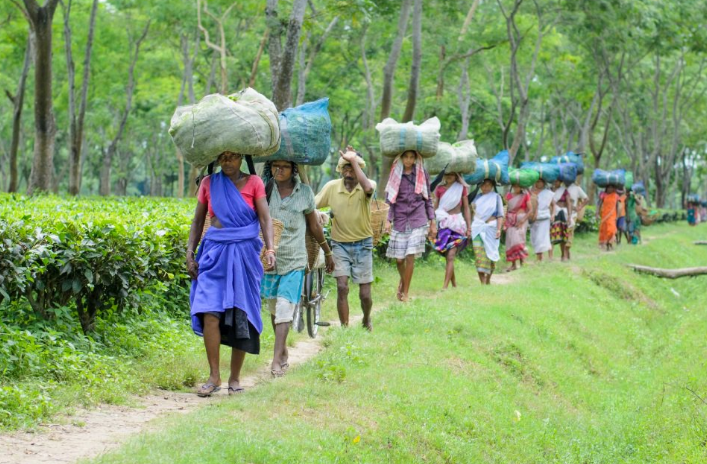Tea Workers Demand Hike in Minimum Wages in India

Hundreds of tea workers, hailing from the state of Assam, gathered in the national capital of India on March 4, to protest the discrimination that workers suffer at the hands of the owners on a daily basis. The protesters demanded implementation of minimum wages and entitlement to legal framework to change the working conditions.
Under the banners of Chaaybagan Sangram Samity and Chah Mukti Sangram Samiti, the tea workers, associated with the Darjeeling Hills Terai Dooars, insisted that the dwellers reopen the closed tea garden and pay the dues. While calling for an end to discrimination, in terms of contractual and temporary recruitments, the workers said that bringing changes in labor laws would only bring some improvement in the sector.
“The fact remains that the tea sector is a highly profitable sector where productivity and the burden on workers are increasing day by day,” one of the protesters said. “For the tea we enjoy every morning, or every time we relax, the workers get less than USD 1.94 per day,” said Bibek Das, a central committee member of the Communist Party of India (Marxist-Leninist) Liberation.
Activists recommended that a white paper be published on the financial status of the tea industry, briefing the owner’s expenses on the maintenance of the gardens.
In April 2018, the Supreme Court of India granted some relief to the tea garden workers in Assam, Kerala, Tamil Nadu and West Bengal, directing the governments of these states to pay half the dues owed to the workers. But despite the court orders, the tea gardens continue to remain in adisarray. Starvation deaths temporarily jolted the public into recognizing the pathetic conditions of the workers. Since 2010, more than 1,480 workers have reportedly died because of malnutrition. In November 2015, The Indian Express reported the miserable condition of dozens of tea workers living in penury in West Bengal, and 25 other workers who died of hunger.
Eight months ago, in August 2018, several unions in West Bengal mobilized hundreds of thousands of workers for a three-day strike against low wages, and demanded a 20% hike in daily wages. The West Bengal government proposed an improvement in the minimum wage by USD 0.25, bringing it to USD 2 per day, as well as an interim payment of compensation for procuring food grains at a rate of USD 0.13 per day. “More than 6 lakhs tea workers participated in that historic strike, and many tea estates looked deserted,” Bibek added.
However, the unions did not accept the government’s proposal and further stretched the agitation until some negotiations were made. But the negotiated terms were never fulfilled. The government and the tea plantation owners continue to ignore the workers’ demands and rights.
Get the latest reports & analysis with people's perspective on Protests, movements & deep analytical videos, discussions of the current affairs in your Telegram app. Subscribe to NewsClick's Telegram channel & get Real-Time updates on stories, as they get published on our website.
























